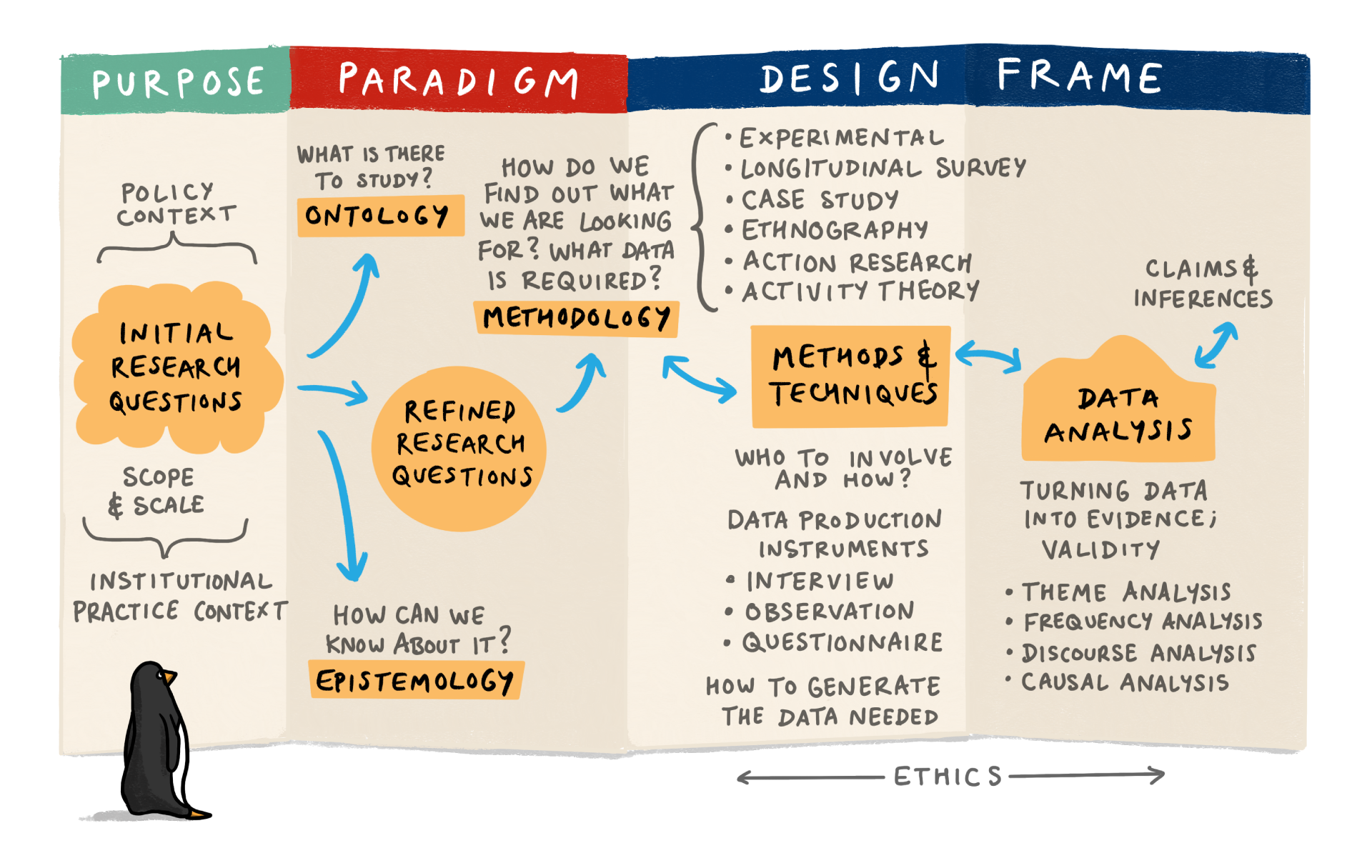Planning Research
Figure 6. The Research Design Process
This diagram (taken from an archived Open University (UK) course entitled E891 Educational Inquiry) shows one way to schematise the research design process. Here, one begins with a research question and a context for the research (comprising policy and practice). This informs the potential scope and scale of the project. The next element is to consider the paradigmatic research approach that will be used, thinking about the ontological and epistemological elements. The approach taken will often reflect the nature of the research question; the kind of data it is possible to collect; and work previously done in the area under consideration. This is the design phase where most researchers will consult relevant literature and contributions by others.
Once working from a research paradigm it becomes possible to start making concrete choices about method(s). Depending on the project, this will involve choices about things like:
- Who will be involved? How will they be selected/contacted?
- How data will be collected
- How data will be managed and stored securely
- Designing, producing and piloting research instruments
- Determining the basis of rigour in the study and the “trustworthiness”(credibility, transferability, dependability, and confirmability) of the data(Guba, 1981; Shento, 2004)
- Ensuring ethical good practice is built into the project (see below)
- Setting a plan for data analysis
The data collection phase can begin once these decisions are made. It can be very tempting to start collecting data as soon as possible in the research process as this gives a sense of progress. However, it is usually worth getting things exactly right before collecting data as an error found in your approach further down the line can be harder to correct or recalibrate around. From here, things become a bit less generic as the specifics of data collection and analysis are going to be determined by the research methods being used. There are additional aspects which it is worth considering in detail at the research design stage.


